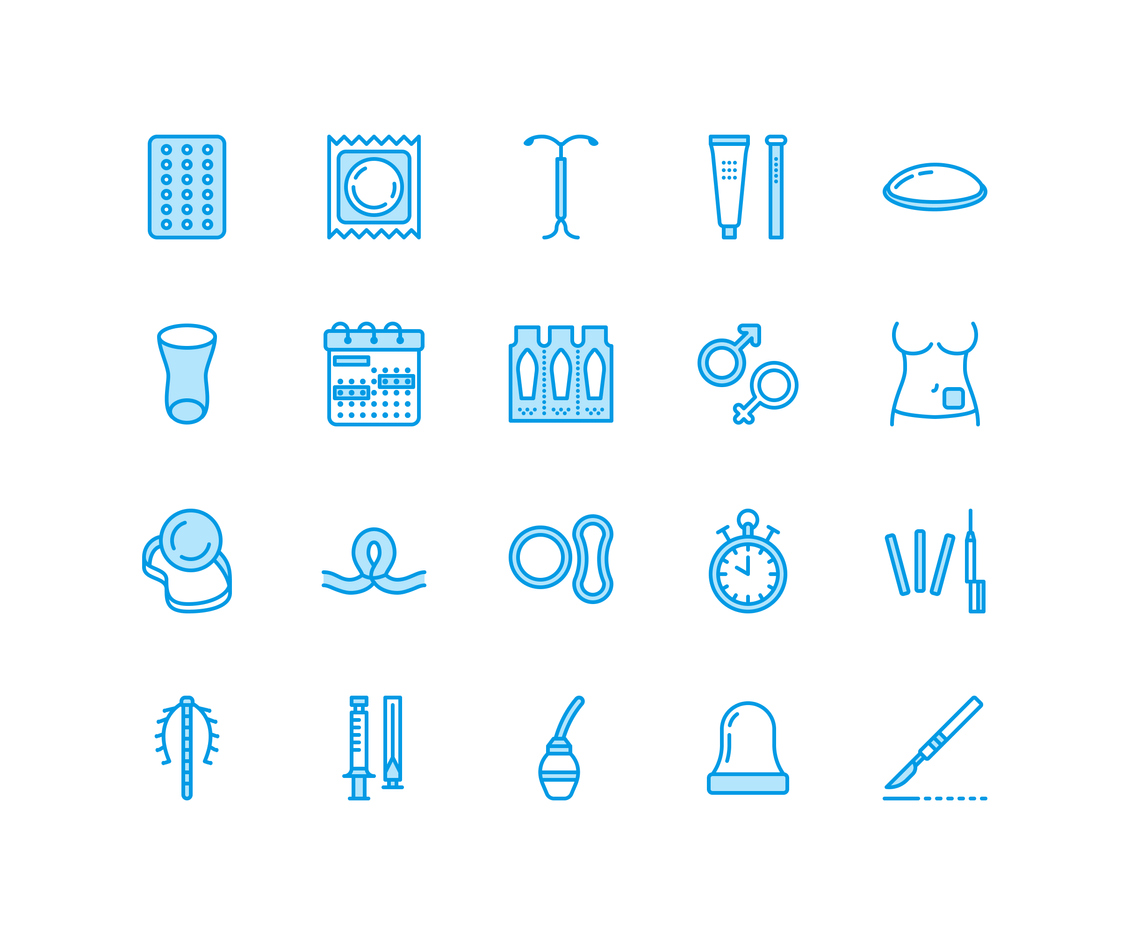
Hormonal IUD/Hormonal Coil
There are two types of contraceptive intrauterine devices (IUDs), also known as coils. There is one that uses hormones and one that doesn’t. This page is about the Hormone IUD (LNG-IUD/IUS). Click here for information and advice on the copper IUD.
A hormonal LNG-IUD is a small plastic T-shaped device with a sleeve that releases a low dose of a progesterone hormone into your uterus (womb). It has two threads that enable you to check that it is in place and to allow your doctor or nurse to remove it at a later date.
The Hormone IUD stops you from getting pregnant by thickening your cervical mucus, by thinning the lining of your womb and occasionally by preventing an egg from being released (ovulation). There are are 3 different types which release a different dose of hormone: Jaydess which lasts 3 years and is the lowest dose(not all clinics stock this device); Kyleena which has a slightly higher dose of hormone and lasts 5 years; Mirena, Levosert and Benelixa all of which have the same but slightly higher dose again can be used for 8 years for contraception use.
If you have a Mirena , then no matter when it was fitted, it can be used for up to 8 years for contraception purposes.
Hormone IUD for HRT use:
The Mirena, Levosert and Benelixa can all be used, in conjunction with oestrogen gel, patches or tablets, as the progesterone component of combined HRT regimens. If using the Hormone IUD for this purpose it can only be used up to 5 years maximum no matter how old you are or which of the 3 devices you are using. The Mirena is the only device that has a licence for this purpose but Levosert and Benelixa have been approved for this use in line with Mirena. In this situation therefore, the device must be refitted by 5 years. If the device is removed and not refitted the oestrogen only HRT must be changed to a combined regimen.
Hormonal coils such as Mirena, Levosert or Benilexa can be used for contraception AND to manage heavy periods, help conditions such as endometriosis and act as the progesterone component of an HRT regimen too.
Devon Sexual Health can offer fits or refits for people who want a hormonal coil as part of their HRT regimen (if you are unable to get this done by your GP or your GP’s waiting list is too full). Please see https://www.devonsexualhealth.nhs.uk/contraception/non-cont-iud/ for more details.

How effective is the hormone IUD ?
A Hormone IUD is 99% effective at preventing pregnancy and can last for 3 to 8 years depending on the type. If a Mirena, Levosert or Benelixa is fitted at the age of 45 years or over it can last up to 10 years for contraception purposes (but only for 5 years if being used as part of an HRT regimen- see previous section). It starts working 7 days after it is fitted and your fertility will return to normal as soon as it is removed. Occasionally, the Hormone IUD can be pushed out by your uterus, or it can move which would stop it from working. This doesn’t happen very often and staff at your Devon Sexual Health clinic will show you how to check so you know it’s in the right place.

Who can use a hormone IUD?
Most women can use the Hormone IUD. When you come in and see us, we will ask about your medical history and whether you have had any illnesses or complications just to check if the Hormone IUD is suitable for you. It is especially popular with women who have heavy periods as it can make them lighter or stop them altogether. If we feel the hormone IUD is unsuitable for you, we will advise you about other methods of contraception. Everyone’s different so please come in and have a chat.

Where can I get a hormone IUD?
Most women can use the Hormone IUD. When you come in and see us, we will ask about your medical history and whether you have had any illnesses or complications just to check if the Hormone IUD is suitable for you. It is especially popular with women who have heavy periods as it can make them lighter or stop them altogether. If we feel the hormone IUD is unsuitable for you, we will advise you about other methods of contraception. Everyone’s different so please come in and have a chat.

Are there any side effects?
Some women may experience some spotting or cramps for a number of days following insertion of a hormone IUD. Your periods may initially be quite erratic as the lining of the womb gets thinner, and you may also experience spotting and bleeding for a few weeks or possibly longer. This nearly always settles and you will eventually have light bleeding or no bleeds at all. There is also a small chance of infection especially during the first 20 days, so if you notice any unusual vaginal discharge or pain then please come back and see us as soon as possible.
The hormone IUD does release a small amount of hormone. This is released into the womb and only a very small amount, if any, is absorbed into the bloodstream. You may notice some breast tenderness after it is first inserted or before a period and some acne or mood changes initially however these should settle. There does not seem to be any difference in the hormonal side effects of the different types of hormonal IUDs.
The hormone IUD is an extremely effective form of contraception and it’s very unlikely that you will get pregnant. If you do, there is a slightly increased chance that it will result in an ectopic pregnancy.
It’s also important to remember that a hormone IUD cannot prevent you from getting a sexually transmitted infection. If you have a new partner or are unsure of your partner’s sexual history, you can contact us regards STI testing or see our STI pages.

What happens when you get a hormone IUD fitted?
You need to book an appointment to see a contraceptive nurse or doctor. They will ask you some questions about your health and then will give you a quick examination to check the size and position of your uterus. Sometimes they will also check for any STIs. Inserting the IUD takes around 5 minutes and can be a little uncomfortable. Don’t worry, the doctor or nurse will talk you through this beforehand and may offer you a local anaesthetic if needed. They may be able to fit the IUD at this consultation, or they will bring you back for the fitting at a later date, whichever is most appropriate. The appointment will last for approximately 30 minutes.
Due to the stimulation of the nerves of the cervix during the IUD fitting you may feel lightheaded or faint during or after the procedure, this is sometimes referred to as ‘cervical shock’. These symptoms should pass quickly. Please let the clinical team know if you feel unwell at any time during or after the procedure. If you continue to feel unwell we will monitor you to make sure you are recovered before you go home. We recommend you sit in the waiting area for 5-10 minutes after your coil fitting and if you have a long journey home, you may wish to consider bringing someone to the appointment with you.
If you decide to have your IUD removed, you will need to visit one of our clinics. A specially trained doctor or nurse will remove it and will give you advice about other forms of contraception you could use instead. Your fertility will return as soon as the IUD is removed. You need to make sure that you have used additional contraception or avoided sex for 7 days before you have the IUD removed, otherwise you could still get pregnant.

Pros & Cons
- It lasts for 8 years and will lighten or stop your periods.
- It is over 99% effective
- You can’t forget to take it and it does not interfere with sex.
- It can cause erratic bleeding
- It doesn’t protect you from STIs
- You have to book an appointment to have one fitted (although this only takes 30 minutes)


